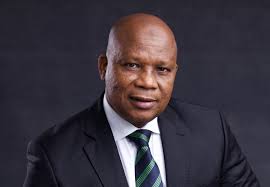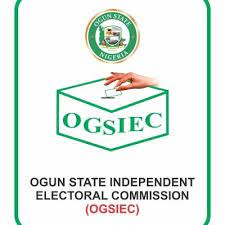By Babatunde Safiriyu
The Association of Nigerian Electricity Distributors (ANED), the umbrella body for 10 of the 11 Discos in the country continues to suffer a collective loss of over N1billion daily due to inability to fully collect charges for power supply to consumers,despite improving its revenue collection over time.
As contained in their performance data released for Q1 2021, of the total N277.5 billion billed, revenue collected stood at N181billion, leaving a loss of N96.5 billion to energy theft, capping of estimated billing and other factors. This amounts to an average loss of N32 billion monthly for the three months and over N1 billion daily.
The said amount rose by 12.79percent in the first quarter of 2021 from 86bn in Q4 2020. The Discos’ overall aggregate technical, commercial and collection loss had deteriorated unabatedly, as it rose to 50.3 percent in March this year from 48.5% by the end of 2020 and 43.3% in February 2020.
However, revenue collection rose by 42.3 percentto N181 billion in the period under review (Q1 2021), from N127billionin Q1 2020. This was impacted by the hike in electricity tariff, states the report.
The Aggregate Technical, Commercial and Collection (ATC & C) Losses indicate losses in the power system, as it provides a picture of both energy and revenue loss conditions.
The technical losses, which the Discos record in their distribution businesses, include the electricity they lose as they take power from their various distribution points to consumption points where they are offloaded and used by consumers. As power flows through distribution facilities, some of it are lost along the way.
For commercial and collection losses, they are revenues the Discos lose to stolen electricity, bills that are not properly calculated, monies not collected from consumers who do not pay for services they got from the Discos, inaccurate customer database, revenues lost to unmetered or estimated consumers, revenues lost to wrong tariff classification by Discos and then electricity sent out to consumption points but were not accounted for by the Discos.
These losses have been on the increase, having recorded a shortfall of N273.42 billion in 2020 and N230.96billion in 2019, receiving a total of N542.73 billion out of N816.15 billion billed their consumers in 2020 and N487.24 billion out of N718.2 billion in 2019 respectively.
The power firms had in June 2020 lamented losses to the tune of N30billion of their monthly revenue due to cases of energy theft, meter bypass, direct hooking, vandalism and unpaid electricity bills by consumers.
ANED’s Executive Director, Research and Advocacy, Barrister Sunday Oduntan, had said, “On average, each Disco loses about N3billion every month on these challenges and for the 10 Discos who are our members, the monthly losses are over N30bn”.
He lamented a liquidity shortfall of over N1.5tn in the power sector, occasioned by a combination of adverse conditions among which is the high rate of energy theft, blaming the sharp practices for Discos Aggregate Technical, Commercial and Collection, ATC&C, losses.
Similarly, the Chief Corporate Service Officer, Kaduna Electricity Distribution Company, KADECO, Uday Mishra had maintained in 2018,that the Discos lost about N20billion monthly across the country due to “collection gap”.
These losses continue to erode the gains occasioned by the increase in revenue collection and energy served. For instance, while the Discos’ revenue collection in the last 12 months (April 2020 – March 2021) set a new record of N570 billion, which represents an increment of 17.5% at a value of N84.8 billion, due to the removal of the subsidy for Tariff Band A, B and C, the ATC&C losses, comparatively, increased.
This is just as average collection efficiency improved from a low of 47.8% in 2016 to 68.4% in Q1/2019. More specifically, between April 2019 and March 2020, the firms recorded 68.8% collection efficiency and 43.3% ATC & C losses. While between April 2020 and March 2021, collection efficiency dropped to 66.7% due to the change in tariff crisis in October 2020, just as ATC & C losses grew to 50.3%.
In the same vein, the billing efficiency also dropped from 82% down to 68%. Although it increased towards the end of 2020, it subsequently, fell from 77% to 75% by Q1-2021.
Again, the Q1 2021 Energy received increased by 14% as compared to in 2020 which resulted in an increase in energy billed by 5%. The Naira equivalent of the energy billed increased as a result of the removal of the subsidy for the Tariff Band A to C. However, ATC losses increased from 17% to 23%, with 23.24 percent (1,381 gigawatt-hours) of the 7,880 GWh received by the Discos lost to energy theft and others, showing a lot could be done by the Discos to minimize the losses.Be that as it may, the ATC losses is presently at 25.5 %.
Even at that, the number of registered end-users in Nigerian Electricity Supply Industry (NESI) keeps increasing, resulting in more than 10 million customers in total.While only 41.1% of the customers are metered due to the historical deficit of metering, it is critical that Discos meter all its customers going forward so the ATC losses indicator would be more reliable to what the real value of ATC losses is at NESI, the quarterly report posits.
Although, the Federal Government had claimed that its subsidy payments in the electricity sector is well over N30billion monthly, the Vice Presient, YemiOsinbajo, at the opening of the 14th Nigerian Association for Energy Economics (IAEE) Conference, recently said the government intends to reduce its interventions in the sector and expected the electricity sector to generate its revenue from the power sector market.
Speaking on the development, an energy expert, JideAdeola, acknowledged the improvements recorded in the power sector but regretted the perennial losses affecting its financial performance, making investments as well as the needed funding unattractive.
In his words, “the distribution companies as well as the FGN have made some remarkable progress in the efforts to stabilize the Nigerian Electricity market. Despite that, there has been little improvements in billing and collection efficiencies as well as ATC & C losses since takeover.
There has been some growth in actual billings and collections year on year especially due to recent improvements in tariffs but overall ATC & C losses are still high. It is possible to imagine that the collection basket is largely same, but with improvements in customers’ number due to the gains from the metering programmes, the collection basket has increased. It is unlikely that those gains will be relevant with the worsened ATC & C losses seen.
The Discos need to address their billing and collection efficiencies. Their operations and customer management systems should continue to improve so that the gains from metering, enumeration and energy accounting can be felt.
Their internal operations need to be more efficient administratively or technically. The upstream participants like TCN and GenCos need to also get the benefits of the tariff improvements. The tariff changes are unlikely to flow upstream with the lower collection efficiencies. Monitoring and enforcing the remittance order may improve allocations to the GenCos.
Since metering is currently not as fast as customer acquisition, distribution companies need to continue to push the current mass metering agenda but paripassu, develop mass meter management programmes that can help identify, manage and respond quickly to issues around energy theft”.
Efforts to get the reaction of the power firms proved abortive as text messages sent to their spokespersons weren’t replied as of the time of filing this report.












